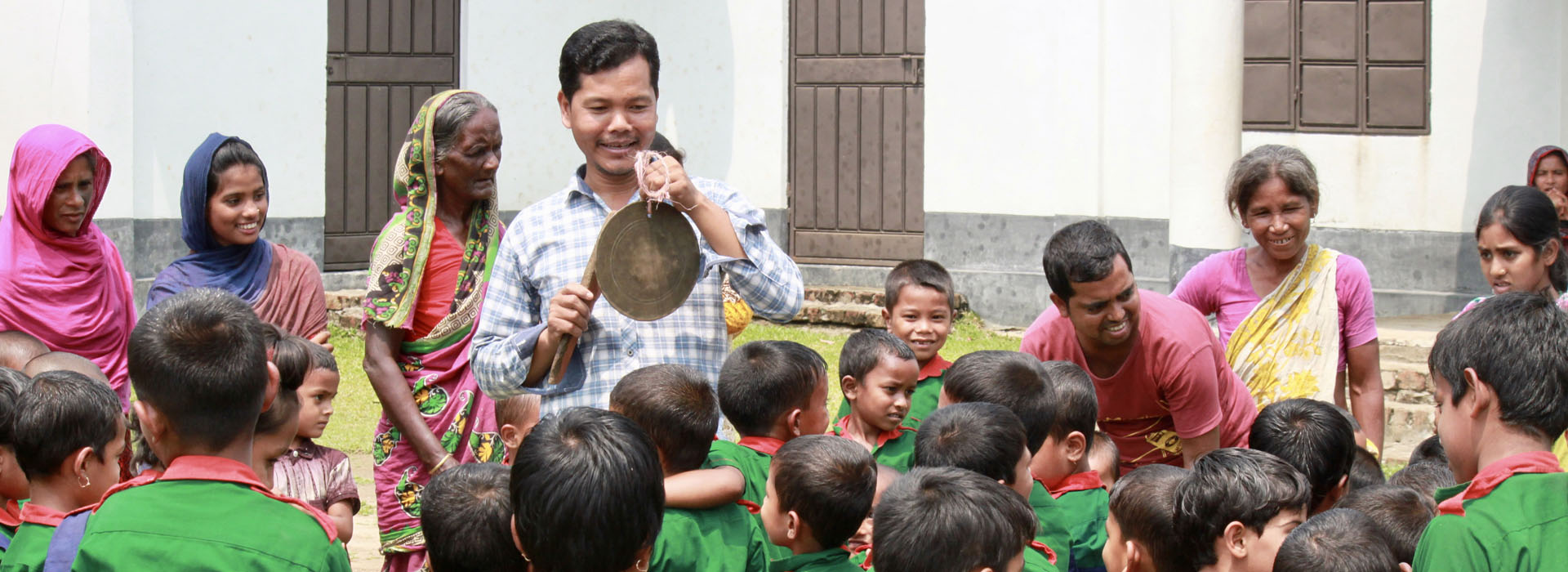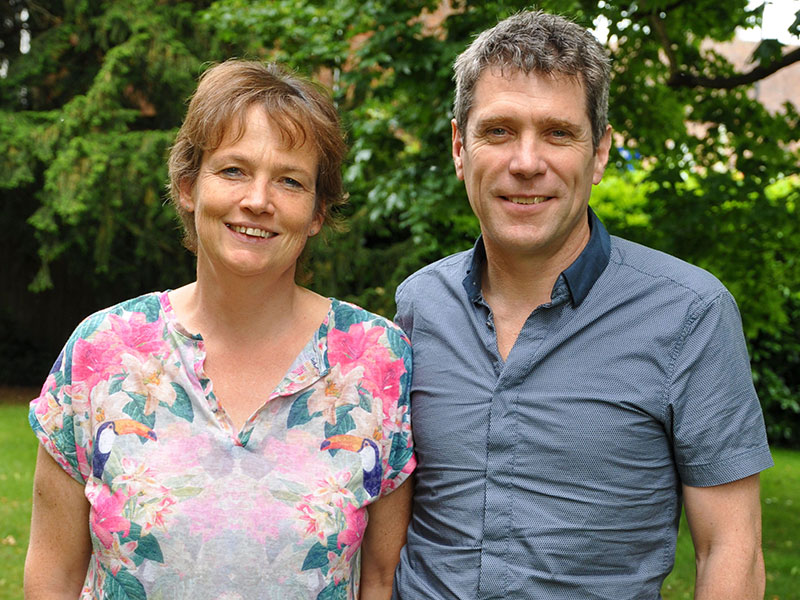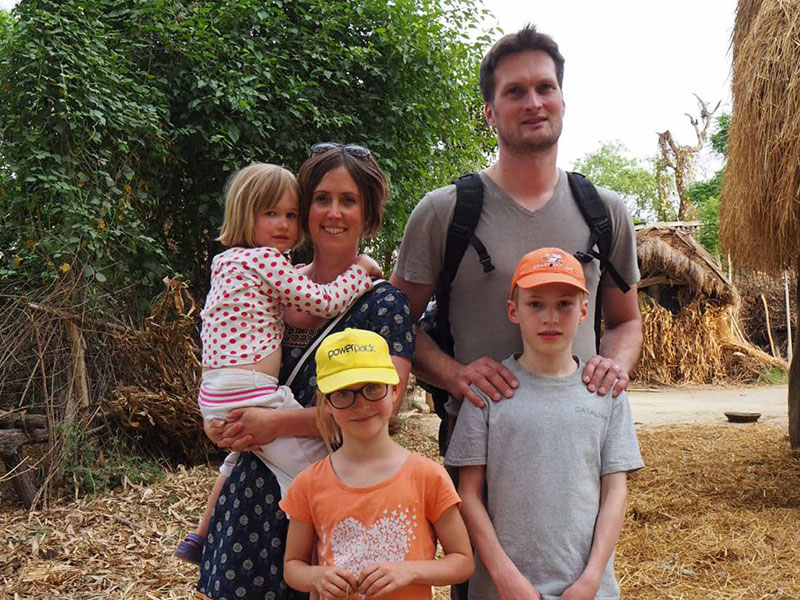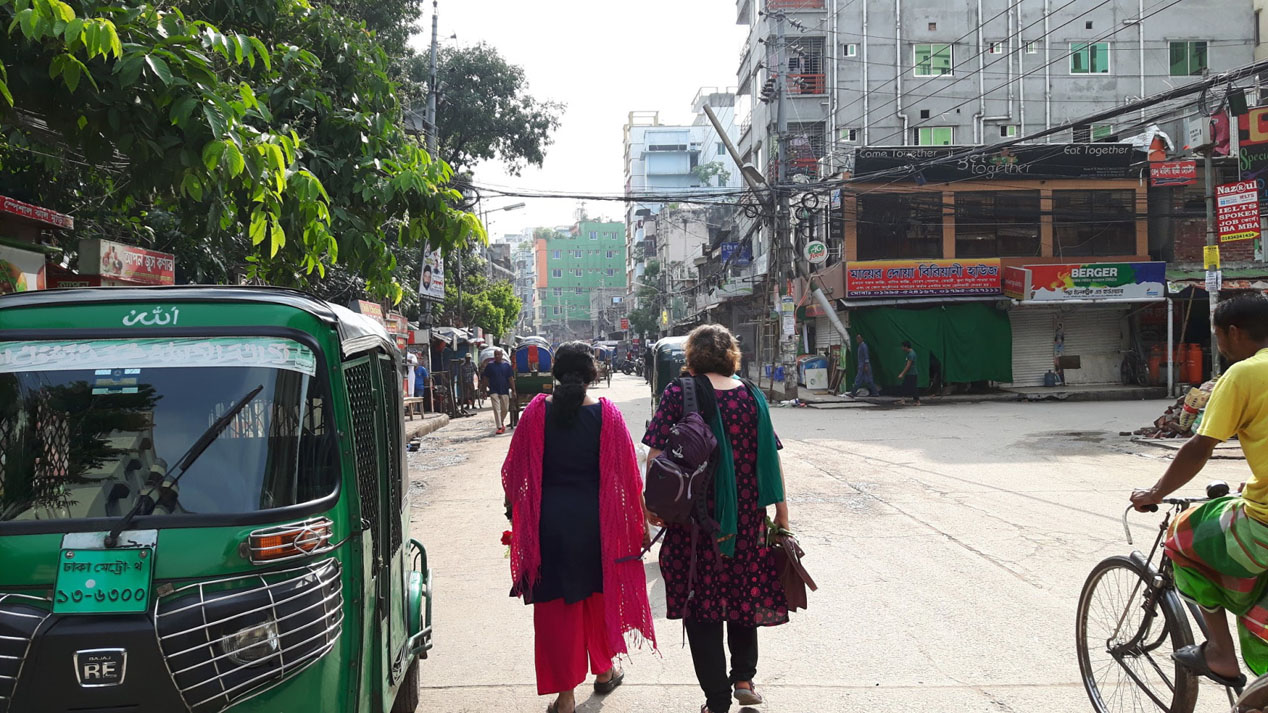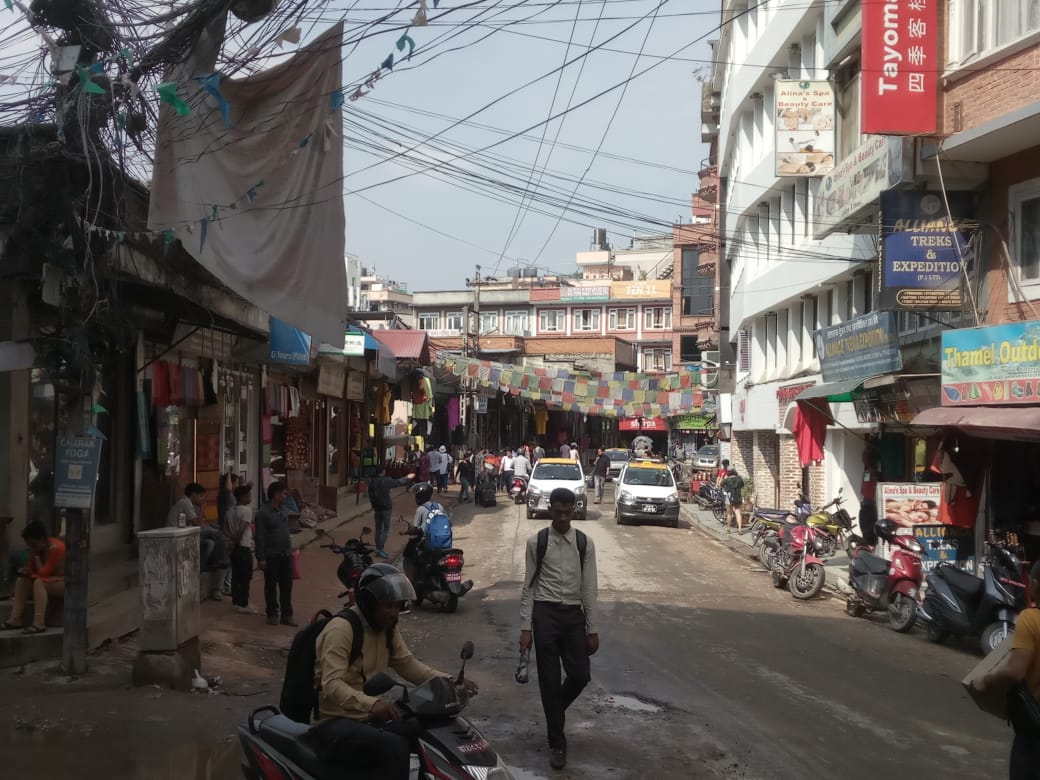Singing for joy – and success!
Singing for joy – and success!
Christian children in Bangladesh are being set up to fail. But with your support, BMS World Mission can help them to change their futures. It all starts with a song.
A rickety bus winds its way around Bangladesh. It started the journey in Dhaka, the country’s restless capital. Many hours later it reaches a village, where a little girl called Ariysha is singing a rhyme:
Boys and girls come to pick flowers
Make a garland of flowers
Place it around your neck
And go to Uncle’s house
Ariysha is at preschool. For children like her, singing songs at school is a novelty. She is used to memorising for her primary school entrance exam. If she fails, she has little chance to continue her education. Doors of opportunity will swing shut. Her world will shrink. The pressure is on for Ariysha and her classmates. And it’s a wonder they’re in preschool at all.
With cramped classes and repetitive learning, many children don’t want to attend school – especially in poor, rural areas. Instead of going to school, children from the age of four collect heavy firewood or work out in the fields. Parents are also afraid that if their children don’t get into primary school, they will need to send them away to work and support the family. Girls as young as eight can be sent to work as live-in housekeepers, whilst boys can be hired out as manual labour.
Christian children, especially, are falling behind. Christian preschools in Bangladesh lack the most funding as Christians are a minority group in the country. There are simply not enough Christians to fund the preschools. This means children like Ariysha are often in large classes, don’t have the materials they need, and don’t pass the primary school entrance exam.
Christian children are a minority and not a priority. Without the education they need, it’s harder for them to gain further education and therefore, stable jobs, in a country where they already face persecution for their faith. But BMS is changing that.
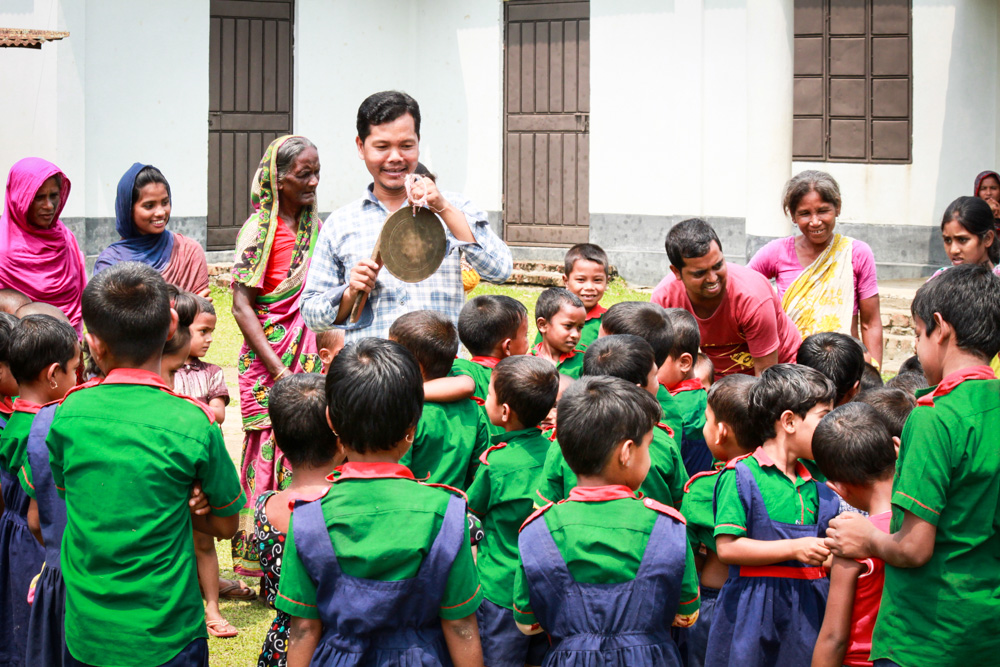
Back on the rickety bus we find BMS educational consultant, Louise Proctor. Thanks to your support, she trains teachers in 25 Christian schools across the poorest, most rural parts of Bangladesh. Travelling for more than 15 hours to reach some schools, Louise shows teachers how to use games and songs in their teaching. Research has repeatedly shown that learning through play is much more effective than by rote.
“The very small children didn’t want to come to school before because they were scared…now they come every day. They are much more eager to learn than before!” teacher Asio Kubi says. Now parents are happy, seeing their children flourish. “I learnt to teach with joy, love and encouragement,” describes Asio. When a teacher enjoys teaching, children enjoy learning.
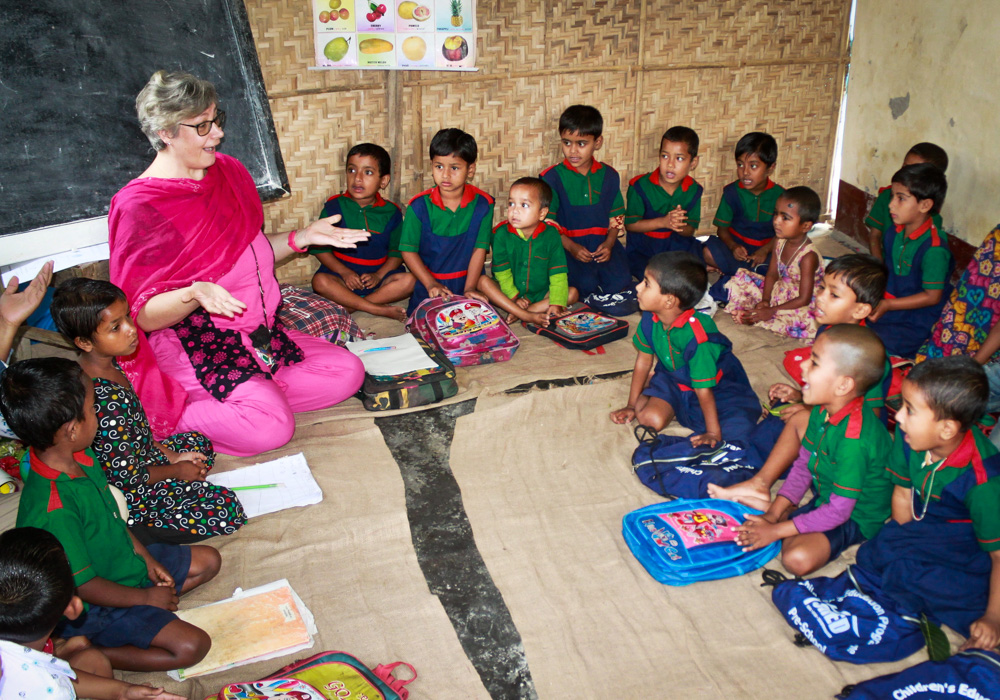
Louise’s vision for the future is to coach local trainers. With their increased insight, they will be able to apply what they’ve been taught specifically to their villages. It’s a method of multiplication, meaning more schools will provide better quality education.
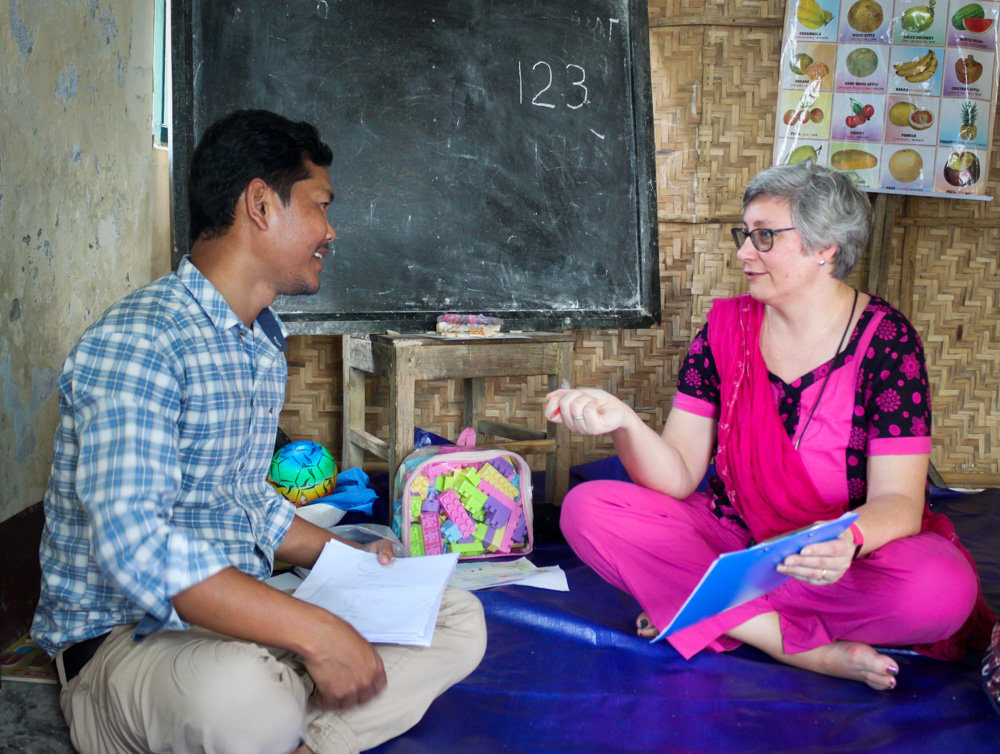
Thanks to BMS supporters, Ariysha now attends school with a smile. She learns by singing, by having fun and by understanding what she’s taught. But there are still children who are being left behind. Help to make Christian children in Bangladesh a priority. Help to give them a future that doesn’t include child labour or being sent away to work. Give what you can and pray for Bangladeshi children today. You may just give them the chance to succeed where no-one else could.
Words by Melanie Webb

